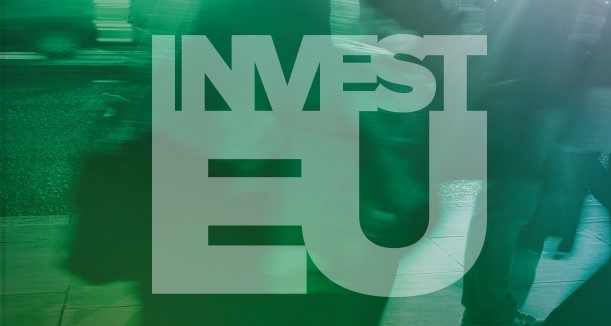Objectives and goals of the funding programme
Supporting the EU’s top policy priorities
Economic recovery, green growth, employment and social well-being across Europe are EU’s top priorities. InvestEU programme supports investments that deliver real benefits and make a difference at the local level.
Simplified and streamlined investment support
Just one set of rules and procedures and one point of contact for advice. InvestEU makes access to EU finance simpler and more effective.
Crowding in of other investors
By using EU budget guarantee to crowd in other investors – private or public – the InvestEU Fund gives an added boost to investment in the EU.
Making EU funds go further
The EU budget guarantee can help public funds go further. InvestEU is expected to mobilise at least €372 billion in additional investment between 2021-27.
Improving the investment environment in Europe
InvestEU is a part of the European Commission’s economic policy measures supporting investment, structural reforms and fiscal responsibility, as well as the EU crisis response package, to ensure Europe remains an attractive place for businesses to settle and thrive.
Type of Programme
InvestEU
Funding type/type of support
Financing (Loans/Guarantees)
Organizational level
International
Programme Focus
Competitiveness, research and innovation, Crisis recovery, Skills, Smart / digital tourism, Skills, Sustainable tourism
Programme relevant for/ target group
Academic institution, Natural persons (private individuals), SMEs and micro companies, VET Providers, Other
Geographic area
European Union
The InvestEU guarantee amounts to €26.2 billion, with provisioning from the Multiannual Financial Framework (MFF) and Next Generation EU resources. The overall investment to be mobilised on this basis is estimated at more than €372 billion.
The funding amounts can vary depending on the specific type of project and the activities involved.
Implementing partners can also provide financing directly to final recipients (e.g. businesses, NGOs, etc.) or indirectly through private or public financial intermediaries who can then provide support to the final recipients.
Different financial intermediaries and final beneficiaries will be targeted according to the policy windows and depending on the criteria set to the different financial instruments designed by the implementing partners.
Financial intermediaries or implementing partners of the InvestEU must invest in project promoters that are natural or legal persons established in an EU country or in eligible third countries (depends on the agreement they have with the EU to access funding programmes), including:
- Private entities;
- Public-sector entities and public-sector type entities;
- Mixed entities, such as public-private partnerships (PPPs) and private companies with a public purpose;
- Non-profit organisations.
The programme aims to contribute to key EU policy objectives, such as supporting sustainable recovery, innovation and job creation in the European Union. For this reason, the InvestEU Fund targets investments in four different policy windows: social investment and skills; sustainable infrastructure; research, innovation and digitisation; and small and medium-sized enterprises.
Particularly of interest to social investors is the “social investment and skills window”, with a budget of €2.8 billion of the EU guarantee. This window aims to deliver on the principles of the European Pillar of Social Rights by supporting:
- Microfinance and social enterprises;
- Social impact and innovation;
- Education, training and skills;
- Social infrastructure and services (including health and educational infrastructure, and social and student housing).
The InvestEU eligibility criteria is defined in the InvestEU regulation and in the investment guidelines.
Moreover, valid investment projects under InvestEU must:
- Address market failures or investment gaps;
- Need EU backing in order to get off the ground;
- Projects must be economically viable;
- Achieve a multiplier effect and where possible crowd-in private investment;
- Help meet EU policy objectives.
The tourism sector came under unprecedented pressure during the COVID-19 pandemic. The impact was especially challenging for SMEs and family businesses. The InvestEU programme promotes investments to strengthen tourism’s competitiveness, sustainability, and value chains. It facilitates sustainable, innovative and digital measures which could help reduce the sector’s climate and environmental footprint.
- Project Title: Argentina Residenza (loan from the Banca del Mezzogiorno – MedioCredito Centrale, Italy)
Hospitality Sector
As part of a recent renovation of the Argentina Residenza Style Hotel, EU funding contributed to the construction of a new wing. A multi-purpose room was built to both act as a lounge and for breakfast to be served. New multimedia and hardware were also installed there. In addition, and 3 new suites with circular whirlpool baths were added. These renovations even created jobs, as the team expanded with five new employees.
EU contribution: N/A (loan)
- Project Title: Il Mondo di Bua (loan from the Banca del Mezzogiorno, Italy)
Food and Drink
The owner of the restaurant Il Mondo di Bua decided to restructure the building’s electrical, hydraulic and heating infrastructure, as energy consumption was the largest expense. With EU funding, Il Mondo di Bua replaced the traditional lamps with LED lighting, installed a photovoltaic system (solar cells) for electricity, and introduced a more energy-efficient oven and multi-fuel boiler. These changes allowed for higher energy and environmental efficiency. The company now saves approximately €60,000 in energy costs and 34,000 kg in CO² emissions per year.
EU contribution: N/A (loan)
